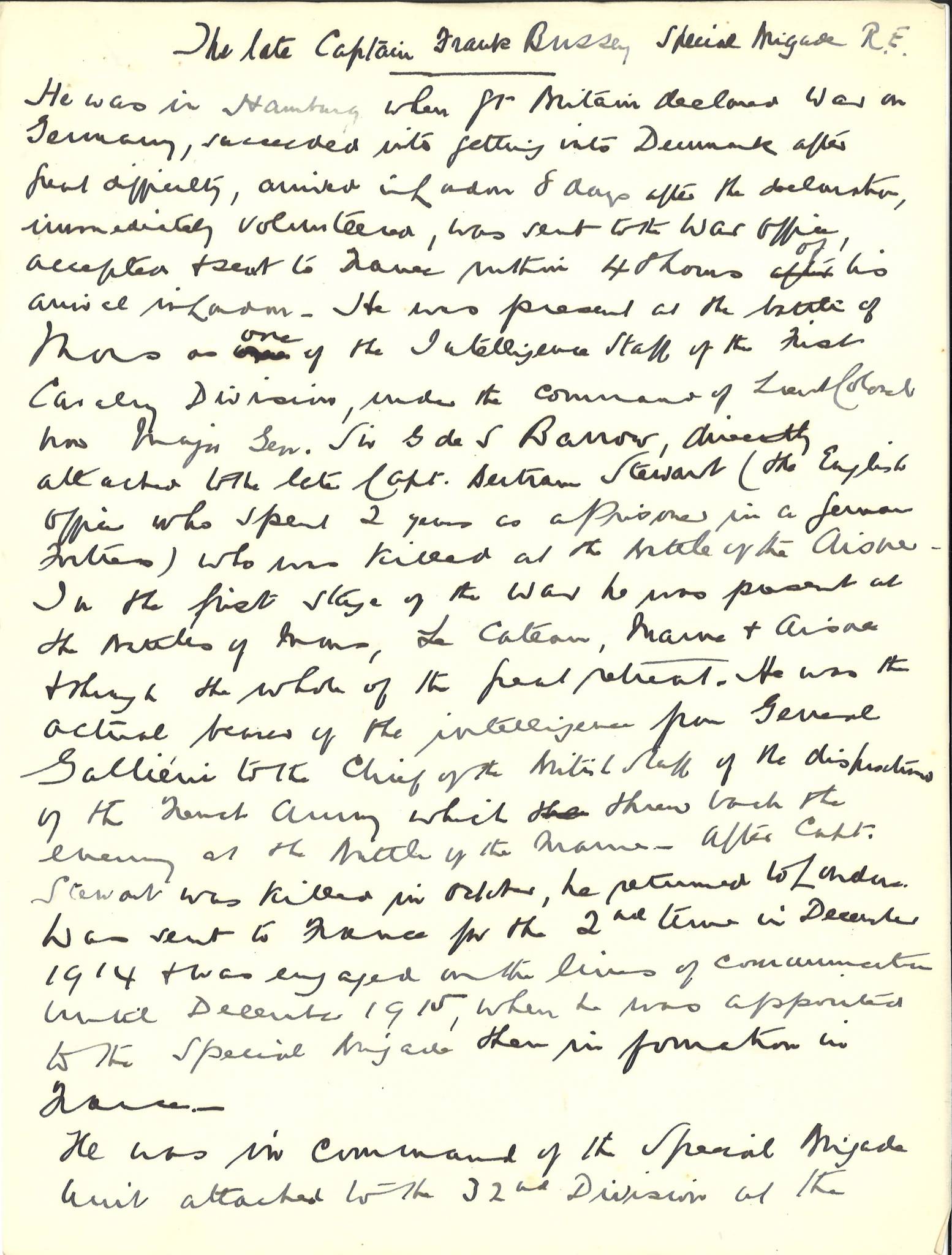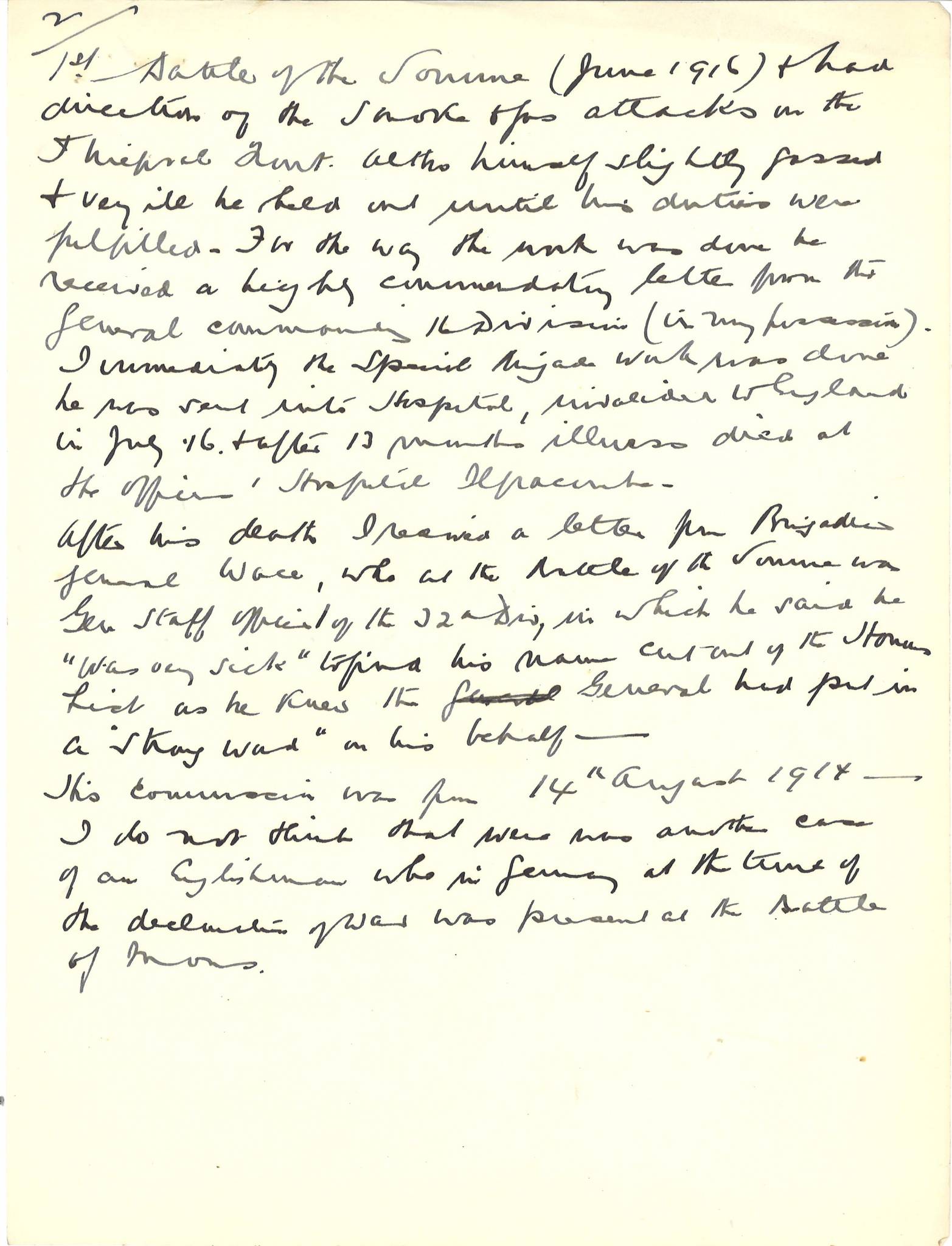F Bussey Career Description


The Late Captain Frank Bussey Special Brigade R.E.
He was in Hamburg when Gt. Britain declared War on Germany, succeeded with getting into Denmark after great difficulty, arrived in London 8 days after the declaration, immediately volunteered, was sent to the War Office accepted & sent to Dover within 48 hours of his arrival in London. He was present at the Battle of Mons as one of the Intelligence Staff of the First Cavalry Division, under the command of Lieut. Colonel, now Major Gen., Sir G. de S. Barrow, directly attached to the late Capt. Bertram Stewart (the English officer who spent 2 years as a prisoner in a German [fortress?]) who was killed at the Battle of the Aisne. In the first stage of the War he was present at the Battles of Mons, Le Cateau, Marne & Aisne & through the whole of the Great Retreat. He was the actual bearer of the intelligence for General Gallieni to the Chief of the British Staff of the dispositions of the French Army which then took the enemy at the Battle of the Marne. After Capt. Stewart was killed in October, he returned to London. Was sent to France for the 2nd time in December 1914 & was engaged on the lines of communication until December 1915, when he was appointed to the Special Brigade then in formation in France.
He was in command of the Special Brigade until attached to the 32nd Division at the [2] 1st Battle of the Somme (June 1916) & had direction of the smoke & gas attacks on the Thiepval Front. Altho himself slightly gassed & very ill he held out until his duties were fulfilled. For the way the work was done he received a highly commendatory letter from the General commanding the Division (in my possession). Immediately the Special Brigade work was done he was sent into Hospital, invalided to England in July ’16 & after 13 months illness died at the Officers’ [Hospital Department?].
After his death I received a letter from Brigadier General Wade, who at the Battle of the Somme was Gen. Staff Officer of the 32nd Div., in which he said he “was very sick” to find his name cut out of the Honours List as he knew the General had put in a “strong word” on his behalf.
His commission was from 14th August 1914. I do not think that there was another case of an Englishman who, in Germany at the time of the Declaration of War, was present at the Battle of Mons.